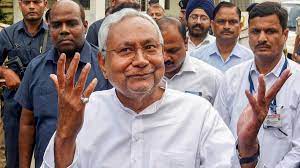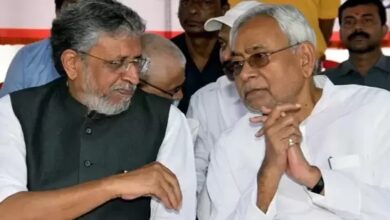Bihar declines to adopt the NEP. Which State Will It Affect?
To bring about improvements in the country’s educational system, the central government unveiled the New Education Policy (NEP) on July 29, 2020. According to the government, the NEP would provide universal access at all educational levels, from pre-primary school to Grade 12.
All children between the ages of 3 and 7 will get early childhood care and education under the NEP. Additionally, it will offer a new curriculum and pedagogical framework with a four-year graduation requirement instead of matriculation. According to a news brief issued by the PIB (news Information Bureau) on August 1, 2022, the new strategy would internationalize education.
While non-BJP-ruled governments have denied the same, claiming different reasons, several states, particularly those that are BJP-ruled, have declared the introduction of a new education strategy.
The Bihar Mahagathbandhan or Grand Alliance administration has officially said that it would not put the proposal into effect.
State education minister and RJD leader Chandrashekhar said, “At the moment, we do not have the necessary educational infrastructure to carry out the new education policy.”
“We are now unable to execute the new education policy due to a lack of instructors and late sessions. We’ll take that into consideration later,” he stated.
He said that he didn’t think it was right to impose the new education program with force. “The state’s education is a concern for the Bihar administration. There are now a lot of challenges. Therefore, under such a circumstance, it could be challenging to execute the new education policy, Chandrashekhar stated.
Governor: “Useful for everyone.”
The governor of Bihar, Rajendra Vishwanath Arlekar, underlined the importance of modern education, calling it helpful for everyone. Speaking during a National Education Policy 2020 meeting in the town of Muzaffarpur, he said that the new education plan frees people from British colonial servitude. He said, “This is in line with global changes.”
The governor said that the new education strategy places a strong emphasis on language. According to him, encouraging the use of the mother language would assist to improve student understanding.
The BJP branch in Bihar attacked the administration for failing to put the new education strategy into practice and said it was disheartening that Nitish Kumar has been in power for more than 18 years and that Bihar still has a subpar educational system.
Ironically, the BJP was a member of the government for 15 of Nitish Kumar’s 18 years in power.
The arguments Chandrashekhar made, nonetheless, are mostly true. Bihar lacks enough professors, many university semesters last one to three years, and many schools are underequipped.
The state’s decision to reject the new education policy has led to the debate of whether it was the correct decision or a mistake.
The opinions of state educators are divided on this.
According to some, Bihar’s educational system would suffer if the new educational strategy is not implemented. Others, however, contend that it won’t have any effect on Bihar and that by choosing not to apply it here, the state made the correct decision.
There is no effect on state education.
“This new education policy is going to promote non-equality and it will reduce local wisdom,” asserts Rupesh, secretary of the Koshish Charitable Trust, “so there will be no harm to the education of Bihar if the state is not implementing it.”
He said, “The Right to Education Act was 100% correct, but this new education policy is a complete muddle.
The state of Bihar won’t suffer if the new education strategy isn’t implemented, according to DM Diwakar, the former director of the AN Sinha Institute of Social Studies.
“This is India’s first education policy that has been developed without any research,” he said. The government decided that this regulation should be implemented, thus it was. The benefits and drawbacks of this regulation were not evaluated.
“In the past, a research committee was initially established for that purpose before making education policy. Every topic was carefully examined by the commission, and regulations were created in response to the situation. However, there hasn’t been any research done on the newly introduced education policy. A policy like that shouldn’t be put in place, he added.
DM Diwakar said that education goes beyond knowing the letters. Education is what causes a person to transform within. However, this new education strategy does not include anything similar.
He said, “It seems that this policy has been developed with a clear objective that seeks to commercialize education.
Bihar has a system in place that may be utilized to develop the state’s educational priorities.
A “political move”
Other educational experts referred to the state government’s choice as political and said that it would negatively affect the state’s educational system.
“It is true that Bihar’s educational infrastructure is not up to par, but it is not so bad that new education policy cannot be implemented,” said Nawal Kishore Chaudhary, a former head of the economics department at Patna College.
It’s undoubtedly a political move. The Bihar administration has attempted to make a political statement by rejecting it, but this would have an effect on Bihar’s educational system, he said.
“By not implementing the policy, the state will be excluded from the national program as well as the credit system,” he said. Additionally, the state will lose access to federal funding for education.
He lambasted the Modi administration for failing to reach an understanding with the states. “To avoid such controversy,” he continued, “there should have been consultation with the state governments and consensus made.”







